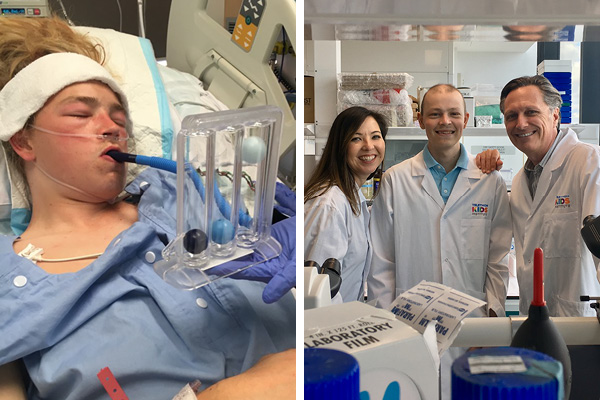Search
Showing results for "clinical trials"
Research
Using provider-parent strategies to improve influenza vaccination in children and adolescents with special risk medical conditions: a randomised controlled trial protocolInfluenza immunisation is a highly cost-effective public health intervention. Despite a comprehensive National Immunisation Program, influenza vaccination in children and adolescents with special risk medical conditions (SRMCs) is suboptimal. Flutext-4U is an innovative, multi-component strategy targeting paediatric hospitals, general practice and parents of children and adolescents with SRMC.
Research
Consensus guidelines for the diagnosis and management of invasive candidiasis in haematology, oncology and intensive care settings, 2021Patients with haematological malignancies, haemopoietic stem cell transplant recipients and patients requiring admission to intensive care settings are at high risk for invasive candidiasis (IC). Over the past decade, there has been increased reporting of non-albicans species and fluconazole resistance in Australia. These guidelines provide updated evidence-based recommendations for the diagnosis and management of IC in adult and paediatric haematology, oncology and intensive care settings.
Research
Carbon dioxide monitoring in children—A narrative review of physiology, value, and pitfalls in clinical practiceContinuous capnography has been recognised as an essential monitoring device in all anesthetized patients, despite which airway device is in use, regardless of their location, as a measure to improve patient safety. Capnography is the non-invasive measurement of a sample of the exhaled carbon dioxide which has multiple clinical uses including as a method to confirm placement of a tracheal tube and/or to assess ventilation, perfusion and metabolism.
Research
Key steps in our journey to a COVID-19 vaccine programProviding a safe and effective coronavirus disease 2019 (COVID‐19) vaccination program is required to mitigate against the current and future negative impacts on the health and wellbeing of all Australians from COVID‐19. An effective vaccination program is a key element required to facilitate economic recovery, safe movement throughout and beyond Australia and a return to the quality of life previously experienced.
Research
Barriers to influenza vaccination of children hospitalised for acute respiratory illness: A cross-sectional surveyTo identify barriers to influenza vaccination of children hospitalised for acute respiratory illness in Australia. A total of 595 parents of children hospitalised with acute respiratory illness across five tertiary hospitals in 2019 participated in an online survey. Multivariate logistic regression identified factors most strongly associated with influenza vaccination barriers.

Highlights from the VTG Laboratory in 2024

News & Events
Meet Baxter HutchinsonBaxter Hutchinson was diagnosed with two life-threatening brain tumours a year ago, aged 17. Since then he has undergone surgery, radiotherapy and chemotherapy in his journey to beat the cancer.
Research
Content Validation of the Communication Inventory Disability–Observer Reported CID-ORCDKL5 deficiency disorder is a rare and severe developmental and epileptic encephalopathy that has profound effects on communication. It is essential that communication be measured accurately for upcoming gene therapy trials. The Communication Inventory Disability-Observer Reported was developed from a framework of communication derived from parent/caregiver interview data in consultation with disability and communication experts, and after reviewing concepts in existing measures.
Research
Efficacy of DYRK1A inhibitors in novel models of Down syndrome acute lymphoblastic leukemiaDespite significant advances, outcomes for children with Down syndrome (DS, trisomy 21) who develop acute lymphoblastic leukemia remain poor. Reports of large DS-ALL cohorts have shown that children with DS have inferior event-free survival and overall survival compared to children without DS.
